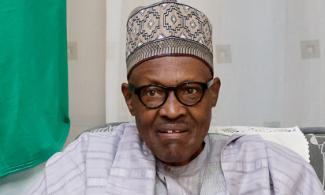
The amount stands as shares of the two states from $62 billion crude oil sales said to have been recovered from some oil companies.
Justice Taiwo Taiwo of the Federal High Court in Abuja has ordered the Federal Government to pay a cumulative sum of over $3 billion (about N1.4 trillion) to Rivers and Akwa Ibom states.
The amount stands as shares of the two states from $62 billion crude oil sales said to have been recovered from some oil companies.

In the judgment delivered on Tuesday, Justice Taiwo ordered the federal government to pay Rivers $1.114.551.610 and another $2.258.411.586 being the amount separately claimed against the federal government as their shares from $62 billion.
The plaintiffs in the suit are the Attorney General of Rivers and Akwa Ibom states while the Attorney General of the Federation (AGF) and Minister of Justice is the sole defendant.
Delivering the judgment, Justice Taiwo held that the federal government admitted the claims of the two states by its refusal to defend the case when served with the court papers.
Justice Taiwo said the mere notice of intention to defend the case without joining issues with the plaintiffs was not enough in any court matter.
By refusing to debunk or controvert the claims of the two states, the Judge held that the federal government had legally admitted that all the averments and claims of plaintiffs be true.
Justice Taiwo further held that the suit of the two states was founded on the Supreme Court on how proceeds from crude oil sales should be shared, adding that the claim of the two states on the recovery of additional $62 billion was never controverted by the defendant despite several correspondences, hence the law deems the claims as the truth.
The court rejected the assertion of the federal government that it cannot pay any money it did not receive from the oil company, adding that the defendant ought to have filed a bona-fide defence to explain its position in court as required by law.
“By not filling a defence to the claims of the two plaintiffs, I have no option but to hold that the defendant has no defence to the case and I have no discretion than to give judgment in favour of the plaintiffs.
“I hereby order that a sum of $1.114.551.610 be paid to Rivers State and $2.258.414.586 to Akwa Ibom State being their shares from the $62 billion recovered from sales of crude oil.”
Meanwhile, Nigerian government is broke and has been heavily borrowing to fund its budgets and for capital and recurrent expenditure.
Nigeria is broke
Minister of Finance, Budget and National Planning, Zainab Ahmed, recently admitted that Nigeria’s economy was facing a difficult time, saying states must improve their internally generated revenues.
The minister was speaking on the controversy over a claim by the Edo State Governor, Godwin Obaseki, that the Central Bank of Nigeria printed N60 billion in March to augment the money shared at March FAAC.
Though the minister dismissed Obaseki’s claim, she said the country’s economy was still stabilising from the recession which the country exited a few months ago.
She, however, added, “These are very difficult challenging times because revenues are low and the demand for expenditures are very high understandably because we have to keep intervening to make sure the pandemic is contained as well as the economic impact it has caused.
“In our case in Nigeria, the crash of the crude oil prices really hit us very hard in terms of revenue. We have very low revenues, we have very high expenditures. What we have done so far is just to provide some stability to make sure salaries are paid, pensions are received every month; that we send funds to the judiciary and the legislature; that we meet our debt service obligations.
“That’s what we are doing. It also means we have had to borrow more than we had planned before the COVID-19 started because we need to still continue to invest in infrastructure using our national budget. We borrowed to invest in key projects such as roads, rail, airports, seaports and several other investments that are required in health and in education and upgrading the social standards and quality of life of our people and Nigeria is not unique as several countries of the world went into recession."